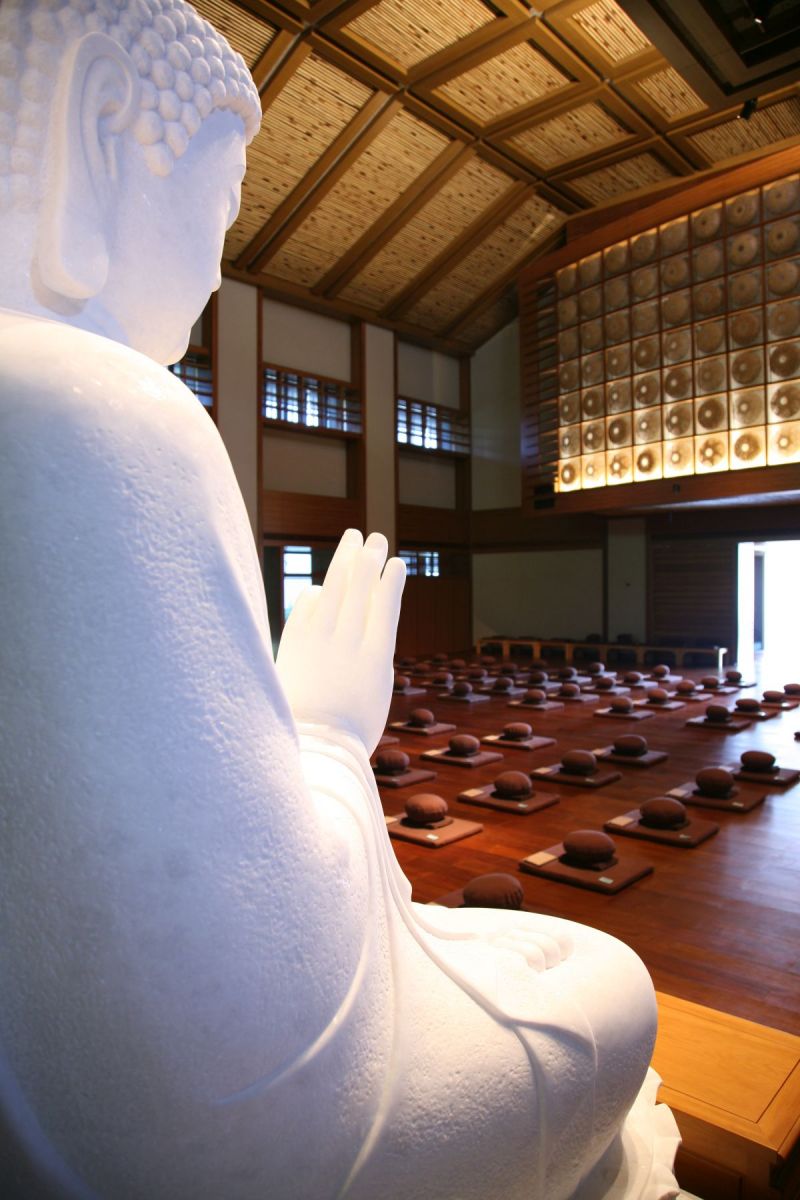Special Topics
Q6: How to avoid making empty vows?
From childhood to adulthood, we often make wishes: "I hope that in the future…", "I want to…", "If I could…, I am willing to…"; however, many of our wishes come to nothing in the end. Why it that? The most valuable and important key to making vows is to put it into practice. If you just make vows but don't practice carrying them out, then no matter how many vows you make, they will become empty vows in the end. How can you avoid making empty vows? Before making a vow, you can first ask yourself: Can this vow be fulfilled? Or do you want to carry it out? If the answer is no, then the vow you made is nothing but a self-deception. In light of this, Master Sheng Yen always advises people not to make unrealistic or unreasonable vows. Otherwise, no matter how big or small the vow is, it will be in vain in the end.
The most valuable and important key to making vows is to put it into practice. If you just make vows but don't practice carrying them out, then no matter how many vows you make, they will become empty vows in the end. How can you avoid making empty vows? Before making a vow, you can first ask yourself: Can this vow be fulfilled? Or do you want to carry it out? If the answer is no, then the vow you made is nothing but a self-deception. In light of this, Master Sheng Yen always advises people not to make unrealistic or unreasonable vows. Otherwise, no matter how big or small the vow is, it will be in vain in the end. Moreover, some people no longer want to make vows after doing it several times. This is so because, for a long period of time, they feel that, although they continuously make vows, many of them still cannot be fulfilled. So they think: Why bother continuing to make vows? Venerable Guo Kae pointed out that, in the process of making and fulfilling vows, we must have a deep understanding and experience about the connotation and meaning of the vows, so that we will have the power to carry out the vows. If we don't have an inner spiritual commitment to the vows we made, then we will easily give up fulfilling them when we encounter setbacks. Therefore, we must make vows over and over again. By doing so, gradually we will gain more and more persistence. Furthermore, it would be much easier for us to fulfill vows. If we only make a vow and then stop doing it, this means that our resolution is not strong enough and the vow will also become in vain as a result.
Venerable Guo Kae believes that the reason why our power of vows cannot be sustained is often because our vows are always outward-seeking, and we subsequently neglect to inwardly contemplate our own minds. Therefore, after making a vow, we must always look back and examine the original intention of the vow during the process of carrying it out. If our original intention of making the vow is not correct, the vow will not be easy to fulfill. Therefore, we must keep returning to our original intention, "using the vows to guide our practice, and fulfilling the vows with our practice".
Extended Reading:
Vows: the Blueprint for Happiness
Q1: In order to make vows, do we need to follow any sequential steps?
Q2: What are the differences between ordinary people making a wish and Buddhists making a vow?
Q3: What are the Ways to Make a Vow?
Q4: Is it necessary to fulfill a vow after making it?
Q5: Is making vows the same as taking oaths?
Q6: How to avoid making empty vows?
Resource: Issue 330 of Humanity Magazine, Dharma Drum Publishing Corporation
Translation: 可馨
Editing: Keith Brown, YKL
